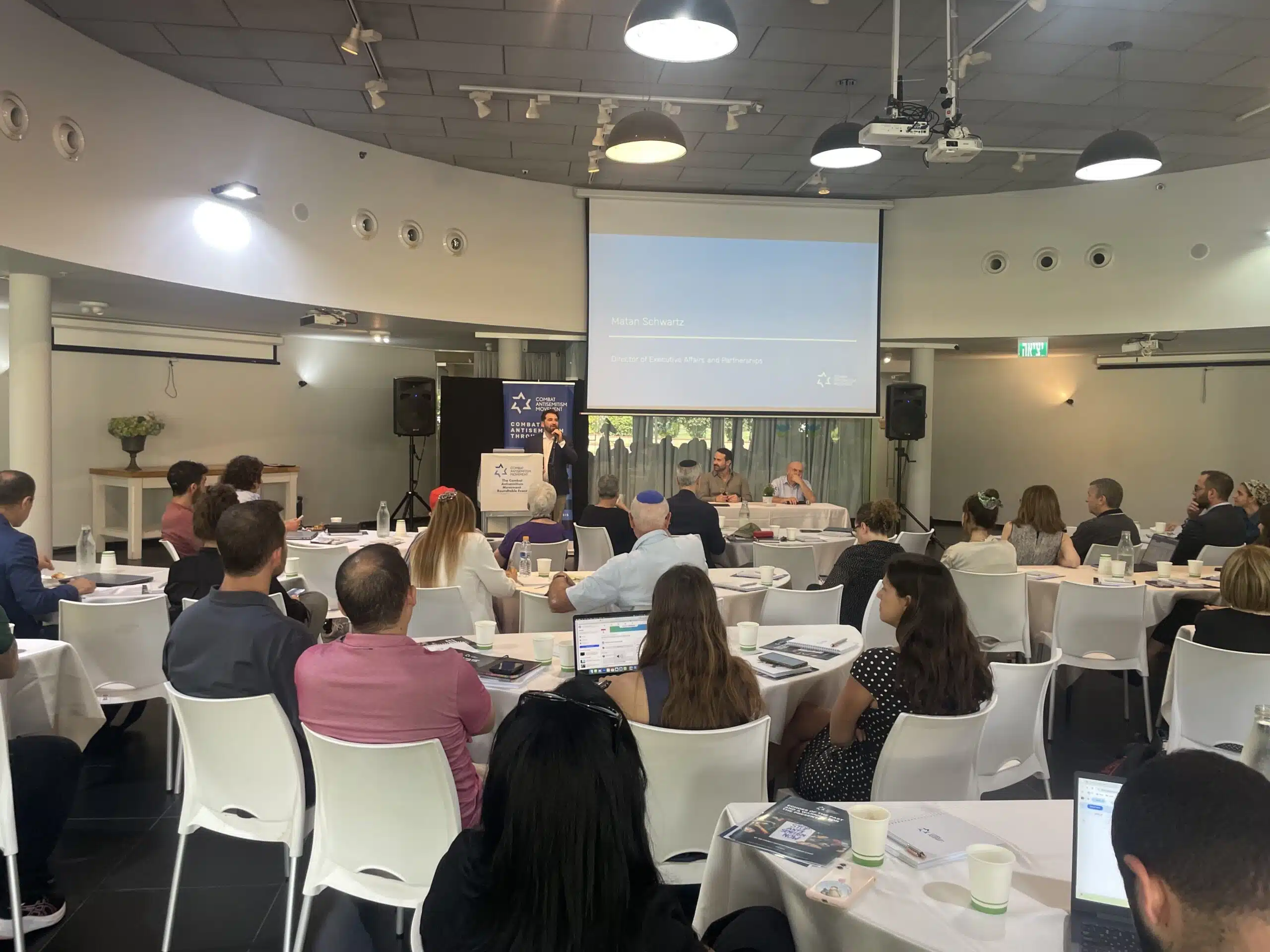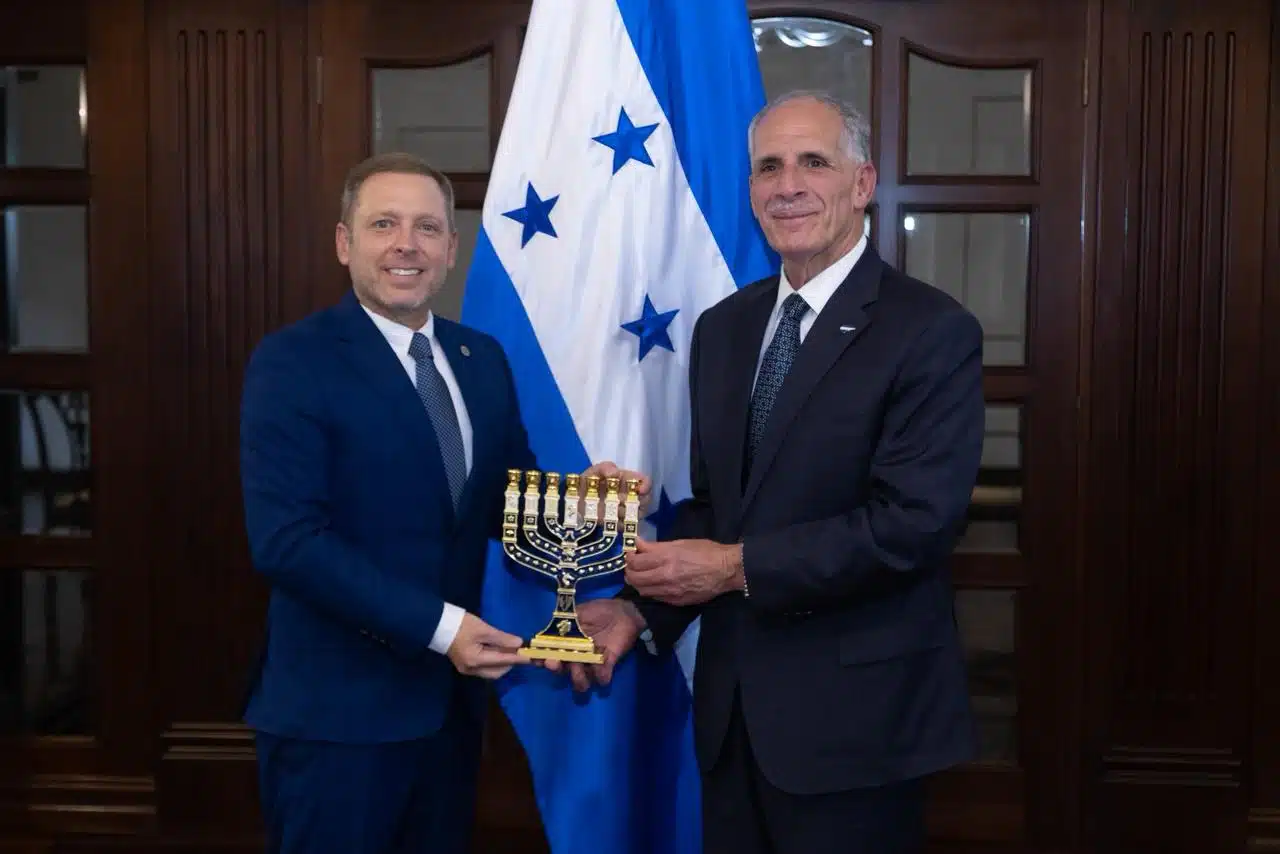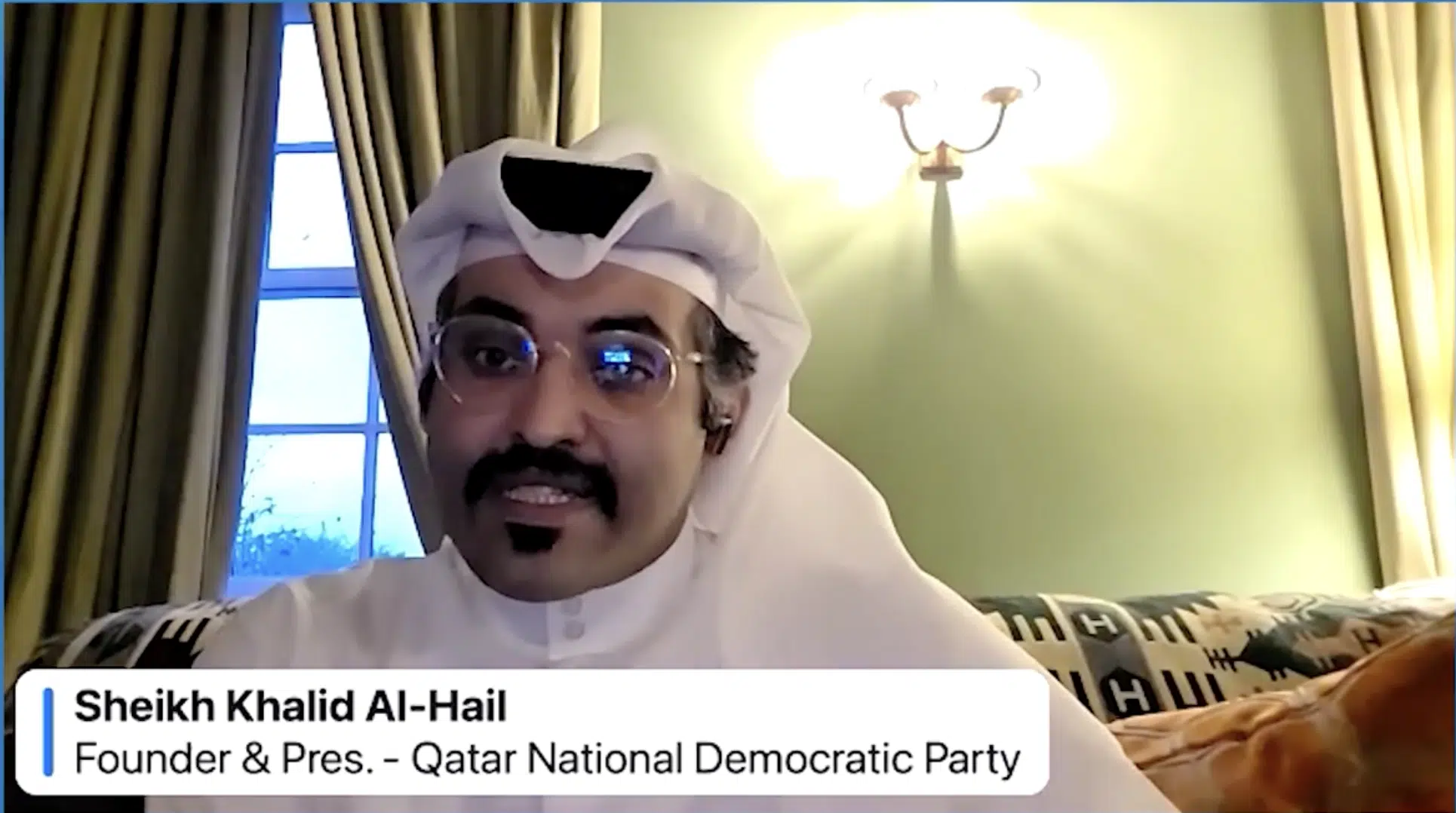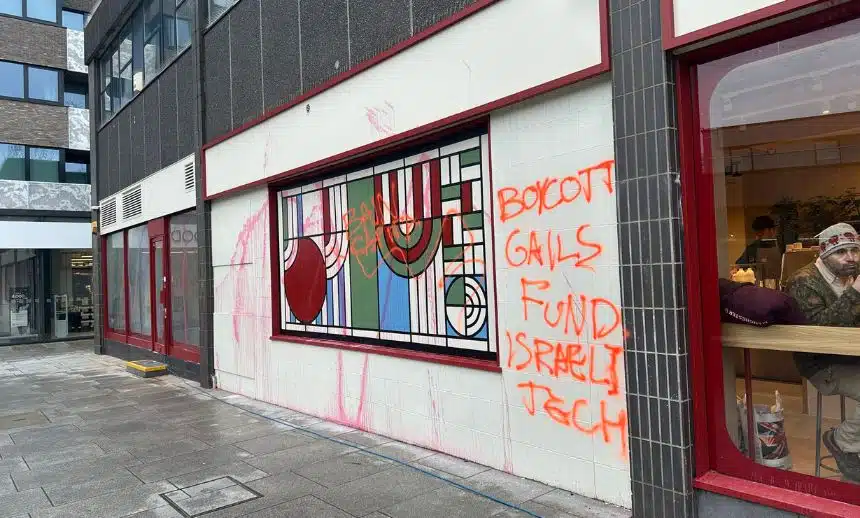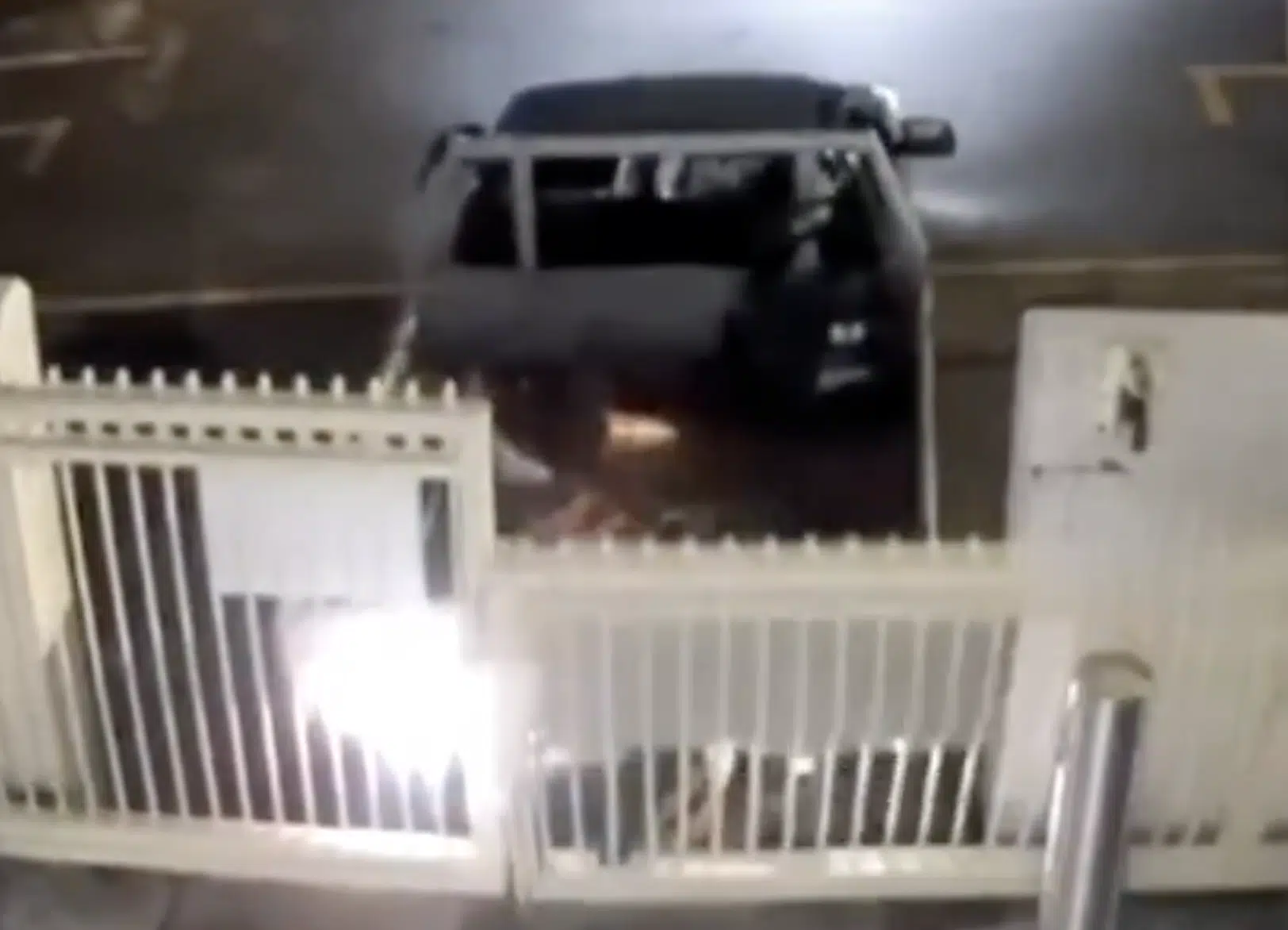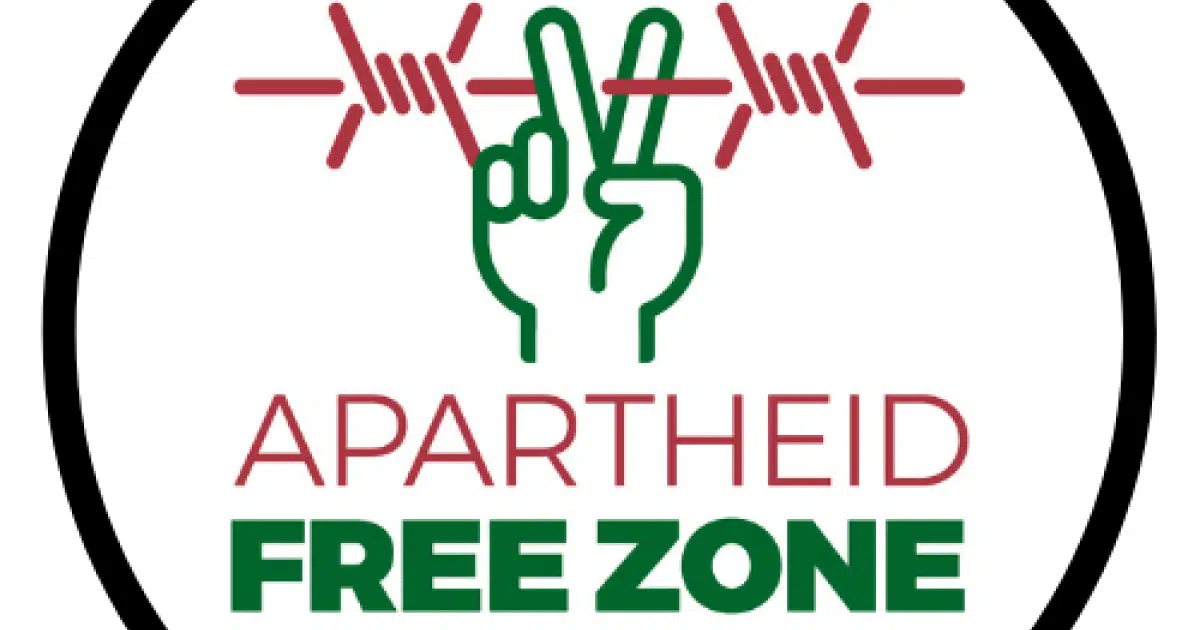|
Getting your Trinity Audio player ready...
|
Partners of the Combat Antisemitism Movement (CAM) gathered on Tuesday in Tel Aviv, Israel for a roundtable forum focused on unity, resilience, and action at a time of rising Jew-hatred across the globe.
The event convened a broad array of civil society leaders, advocacy professionals, faith representatives, researchers, and government officials for an afternoon of strategic dialogue and collaborative engagement. Participants represented fields ranging from education, policy, and media to interfaith engagement, digital platforms, and grassroots activism.
Moderated by CAM Director of Executive Affairs and Partnerships Matan Schwartz, the forum opened with a fireside chat between CAM Advisory Board Chair Natan Sharansky and CAM CEO Sacha Roytman. Together, they reflected on the shifting landscape of antisemitism and the threats confronting Jews in Israel and worldwide.
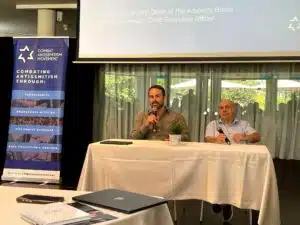
In his remarks, Sharansky pointed to the 2001 United Nations World Conference Against Racism in Durban, South Africa, as a pivotal turning point in the modern evolution of antisemitism. Though presented as an international initiative to end racism, it instead became a concerted campaign to isolate Israel through morally repackaged hate. Participants adopted declarations calling for Israel’s complete isolation, branding it an apartheid state guilty of ethnic cleansing and genocide. Acts reflecting the broader “Durban Strategy” — such as BDS and legal warfare — were first formalized during the conference and continue to shape anti-Israel narratives today.
Sharansky also highlighted his “3 Ds” (demonization, double standards, and delegitimization) test — a framework that serves as a critical tool for distinguishing between legitimate criticism of Israel and modern forms of antisemitic rhetoric. It helped lay the intellectual foundation for the International Holocaust Remembrance Alliance (IHRA) Working Definition of Antisemitism.
He warned that antisemitism has moved far beyond university campuses and is now normalized, entrenched in mainstream political discourse across both Europe and the United States. He cited the example of Zohran Mamdani, a Democratic mayoral candidate in New York City who denies Israel’s right to exist as a Jewish state — yet is running to lead the city with the largest Jewish community outside of Israel. “It speaks for itself,” Sharansky noted.
Roytman emphasized that unity is not just a strength — it’s a necessity. “Those who seek our destruction — whether from the far right or the far left — manage to unite around a common goal,” he said. “We must learn from this. In defending Jewish life and the State of Israel, we must remember what unites us more than what divides us — and stand together, united across every political and religious line.”
One of the most powerful moments of the day was a presentation by Alon Kaminer, founder of PossibiliSea and a wounded IDF soldier who returned to his unit after the October 7th massacre and was gravely injured in combat — losing both arms, a leg, and an eye.
Despite the enormity of his injuries, Kaminer radiates strength, kindness, determination, and unwavering optimism. Through PossibiliSea and his broader advocacy work, he is creating new pathways for others to live, move, and thrive with dignity — while embodying the very essence of fortitude, perseverance, and the unbreakable Israeli spirit.
The afternoon featured a dynamic series of lightning talks, each offering sharp, sector-specific insights into the evolving fight against antisemitism. Speakers included Omer Dagan, CEO of Oct7; Emmanuel Navon, Senior Fellow at the Jerusalem Institute for Strategy and Security; Eric Rubin, Global Ambassador of the Maccabi World Union; Aviva Rosenschein, Director of External Affairs at CAMERA; Gil Hoffman, Executive Director of Honest Reporting; Shadi Khalloul, CEO and Founder of the Israeli Christian Aramaic Association (ICAA); Hadas Kuznits, Head of Communications at CyberWell; Leon and Juliette Reich of the Leon Reich Center for Combating Antisemitism; Nezar Hatib, Head of the Druze Religion and Council of Religious Affairs at the Israeli Ministry of Internal Affairs; and Nadeem Ammar, Founder and Director of the OHR NGO, among others.
Members of the CAM Advisory Board, including Robert Singer, Sima Vaknin Gill, and Rabbi Stuart Weinblatt were also present, offering insights and guidance shaped by decades of leadership in Jewish communal life.
CAM’s team shared several key initiatives. CAM Public Affairs Officer Natalie Sanandaji spoke about her experience as a Jew of Iranian heritage and introduced the “Esther and Cyrus Alliance,” an initiative that highlights the commonalities between Jews and Iranians, emphasizing the shared fight against a common enemy and creating opportunities to bring people together around shared values.
CAM Director of Community Engagement Shira Granot shared the Israel Wine Collection, which brings together wineries directly impacted by war to tell Israel’s story of strength, endurance, and peoplehood — one glass at a time.
At a time of mounting threats, one truth stood above all: regardless of political views or religious identity, we must stand together — united in safeguarding Jewish life, the Jewish state, and the Jewish future.
The Combat Antisemitism Movement (CAM) is a global coalition engaging more than 950 partner organizations and five million people from a diverse array of religious, political, and cultural backgrounds in the common mission of fighting the world’s oldest hatred. CAM acts collaboratively to build a better future, free of bigotry, for Jews and all humanity.

